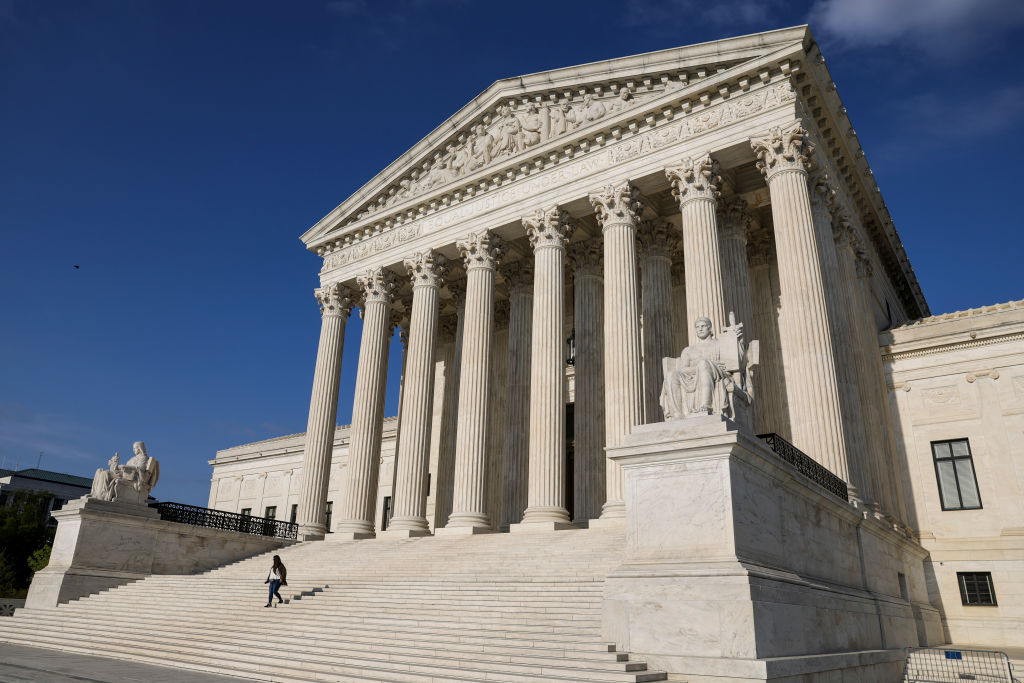Justices to consider whether to weigh in on $5 million verdict against Trump at next conference
Introducing the Interim Relief Docket Stat Pack
Second Amendment jurisprudence is a mess
More news
Defending the Fed: agency independence in three dimensions
Controlling Opinions is a recurring series by Richard Re that explores the interaction of law, ideology, and discretion at the Supreme Court.
The Supreme Court is creating a formidable presidential power to remove subordinate executive officials, even from many once-independent agencies. Yet the court is not simply tearing down the principle of agency independence associated with Humphrey’s Executor v. United States, the court’s 1935 decision approving statutory limits on the president’s power to fire commissioners of the FTC. To fully understand the court’s removal jurisprudence – how and why it is changing – executive officials’ for-cause tenure protection must be understood in at least three dimensions.
Continue ReadingThe case for embracing “boring” cases
Friday, Jan. 9, was the Supreme Court’s first announced opinion day of the term, and the excitement that typically surrounds that occasion was heightened by rumors that the court would release its ruling on President Donald Trump’s tariffs. It felt as if the eyes of the whole country were on One First Street – well, the Supreme Court’s website – as the clock struck 10 a.m. and the landing page for opinions of the court gained an entry.
Continue ReadingSupreme Court agrees to hear case on digital privacy, reverses ruling ordering new murder trial
The Supreme Court on Monday morning agreed to weigh in on the interpretation of a federal law, enacted in the wake of Judge Robert Bork’s unsuccessful Supreme Court confirmation hearings, intended to protect videotape rental histories from public disclosure. The justices also reversed a ruling by a federal appeals court that had ordered a new trial for a Maryland man convicted of attempted murder.
The Supreme Court did not act on several high-profile petitions for review that it has now considered at several conferences in a row, including petitions challenging the constitutionality of a federal law banning the possession of guns by people convicted of felonies and a petition by oil and gas companies, which argue that federal laws preclude local governments in Colorado from bringing lawsuits in which they contend that the companies have knowingly played a role in exacerbating climate change.
Continue ReadingCourt to decide whether immigration agents can presume guilt
Immigration Matters is a recurring series by César Cuauhtémoc García Hernández that analyzes the court’s immigration docket, highlighting emerging legal questions about new policy and enforcement practices.
Immigration law creates a clear hierarchy of access to the United States. Most people who are not U.S. citizens do not have any right to set foot in the country. By contrast, U.S. citizens can come and go as they please. One rung below U.S. citizens, lawful permanent residents – also known as green card holders – can come and go unless they’ve committed certain crimes.
This month, the Supreme Court agreed to weigh in on the evidence that immigration officials need to treat permanent residents as if they are removable. In Bondi v. Lau, the justices are likely to consider whether border officials can rely on criminal charges alone to decide that permanent residents have committed an offense that can allow the government to remove them from the country.
Continue ReadingA mid-term update on criminal law at the Supreme Court
ScotusCrim is a recurring series by Rory Little focusing on intersections between the Supreme Court and criminal law.
A lot has happened on the Supreme Court’s docket since my September preview, including six criminal law opinions on the merits (two by summary reversal – that is, without additional briefing and oral arguments), and 29 new grants of review (certiorari). Eight separate writings of individual justices in criminal cases have also appeared on the “Orders” docket. And of course last week saw oral arguments about Hawaii’s private-property-versus-gun-rights law. I should also mention two significant full court decisions on the interim docket that have “related to criminal law” implications: Trump v. Illinois (decided on Dec. 23, addressing Trump’s deployment of the National Guard in Chicago) and Noem v. Vasquez-Perdomo (decided on Sept. 8, addressing immigration detentions in Los Angeles, about which I wrote critically at the time).
Continue Reading